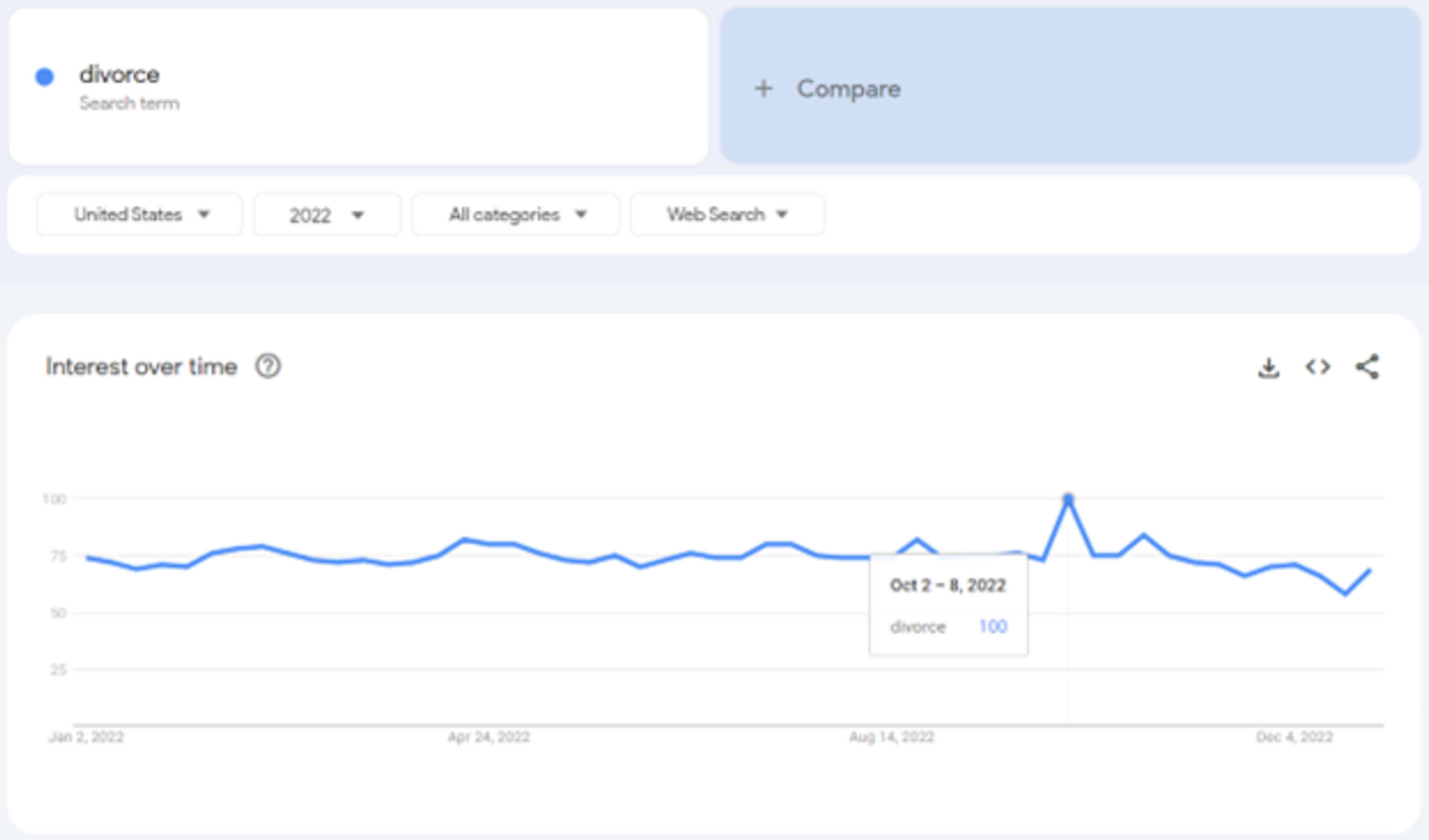Everything You Need to Know About AI in Legal Marketing

AI seems to be everywhere. A survey conducted by Salesforce shows that 76% of respondents in the US, Australia, and the UK have used AI for basic content creation. Another survey, this time by Capgemini, found that 96% of organizations placed generative AI on their boardroom agenda.
Generative AI is a type of technology that allows users to create or “generate” a wide range of content, from texts and images to videos. These abilities have taken the world by storm; just two months after launch, ChatGPT reached more than 100 million monthly active users. Midjourney, a tool that lets users create custom images, has been visited over half a billion times.
AI has impacted various industries. The legal sector is no exception. ChatGPT, through a team of researchers, passed the Uniform Bar Examination. Meanwhile, ‘Lawrence,’ — a chatbot — scored higher than human test takers on the Solicitors Qualifying Exam.
The use of AI has its drawbacks. In a survey among US employees, 77% are worried about the legal risks. Some incidents show that AI integration could be smoother. For example, a New York lawyer in a personal injury case had to apologize to the court for submitting arguments with bogus citations.
These examples show that the decision to use AI is not binary. It can be both helpful and harmful. As such, you should be careful about using it for different purposes, particularly when ranking your website on search engines.
The benefits of AI in marketing your firm
If the pace of investments in AI is any indication, the industry is here to stay. Around $93.5 billion was allocated to AI companies in 2021. This represents a 37.8% increase from $67.85 billion in 2020.
These investments come because many decision-makers, like those in the IT industry, believe that AI adoption can benefit businesses.
Such benefits also improve how you promote your law firm and boost your digital presence.
1. Enhancing client experiences through website chatbots
Two-thirds of people across all income levels in the US experienced at least one legal problem in the last four years, according to one study. It also shows that lower-income Americans and members of a younger generation are especially vulnerable to law-related issues. For these people, access to helpful information is crucial.
AI-powered chatbots — interfaces with which a person can interact — deliver relevant information through pre-scripted conversations. Users may submit personal information and reach a specific attorney rather than filling out an online form.
Chatbots are useful in marketing because they allow you to gather information about your website visitors. They can input data like their interests and contact details. These data points help you understand your users better.
With more in-depth information about your user, you can identify common questions and answer them through great content. Chatbots additionally increase the duration a user spends on your website, which can increase your rankings in search engine results.
2. Generating content ideas
According to a survey by the Content Marketing Institute, only 12% say that their content is significantly different from that of their competitors. With 63,000 lawyers added in the US between 2013 and 2023, distinctive content is as essential as ever.
However, brainstorming ideas can be challenging.
Building a content calendar customized to your target audience may take around two weeks. You need to plan how various media, like infographics, blog articles, and videos, fit on certain days.
If your firm specializes in divorce, you may think you should publish content in January. Many attorneys agree that the first month of the year is "divorce month," given the many filings couples take to end their marriage during that period.
If you look at 2022 data from Google Trends, many people search for divorce during October as they begin considering the filing process.

Screenshot from Google Trends.
Given this data, you can ask an AI tool — in this case, ChatGPT — for “5 ideas for a blog post about divorce.”

Screenshot from ChatGPT.
As you see, some results apply to a law firm. For example, the number 2 suggestion about the difference between mediation and litigation may help law firms educate those looking to avoid a drawn-out process.
Unique content also improves your chances of obtaining backlinks. In other words, other websites may use your article as a credible reference. The more backlinks you receive, the higher your site ranks on search engines. These links signal to Google, Yahoo, or Bing that your website is a reputable source.
3. Suggesting content improvements
AI tools help you understand your limitations, particularly when it comes to online writing. Comprehensively knowing one topic is one thing, but presenting it without grammatical issues is another. A user might be drawn to your specific knowledge but turn away at the sight of spelling errors.
To reduce the risk of error-ridden articles, you can use tools like Grammarly. It clarifies your text and improves its delivery, among other features. Over 30 million people will have used Grammarly in 2022, which shows how popular the tool has become since its launch in 2009.

Screenshot from Grammarly.
Besides Grammarly, there is also another tool that suggests content improvements. QuillBot can assist you in grammar and spelling, but it also paraphrases paragraphs. More than 150 million people have used QuillBot.
Content ridden with grammar and spelling mistakes is considered low-quality by Google. Avoiding sloppy writing reduces the risk that your content ranks below that of your competitors.
4. Powering content recommendation tools
Content recommendation tools are systems that provide a variety of media, from articles to videos, to your website visitors as a result of their behavior. These AI-powered systems perform different tasks, including:
Assessing user data to understand their interests.
Categorizing a wide range of content quickly.
Learning from user feedback.
To illustrate how these tools work, let’s say someone searched for information about the deadline for filing a car accident in New York. They came across your website and an article about the statute of limitations in the Empire State.
After reading, that individual may be recommended related articles. These may consist of:
An article about how negligence is determined in New York.
An article about what to do in a hit-and-run situation.
An article about why attorney representation is crucial to obtaining compensation.
This tactic of serving related articles helps you engage with potential clients. It can lead to lower bounce rates on your website.
Lower rates mean that the user is engaged. In other words, they did not exit your website after just one article.
Implementing content recommendation systems is one way of improving the user experience, or UX, as these tools provide personalization to website visitors. When someone is engaged because they found relevant information on your website, you can rank higher in search results.
It may also lead to repeat clients. Around 60% of consumers say that repeat purchases are possible after a personalized experience, according to Twilio.
The drawbacks of using AI tools in legal marketing
There are over 100 lawsuits about AI use currently being processed in the legal system. Despite the benefits, tools like ChatGPT and Midjourney still carry risks. Keep these in mind as you integrate AI into the marketing process.
1. Facing copyright risks
In 1973, a computer program called AARON allowed an artist to create abstract paintings. These works are one of the earliest forms of AI art.
It would be over four decades later when the topic of AI art became mainstream with the release of DALL-E in 2021. This tool allows users to generate images based on text prompts. For instance, you could type “a purple cow flying over Yellowstone.” DALL-E would create it. Generating such images is generally free.
However, “just because something is out there for free doesn’t mean it’s free of rights,” according to lawyer Regina Penti.
Companies like Stability AI and Midjourney are currently defendants in a lawsuit involving a group of illustrators who claim their works were used to train AI models without permission.
Given this, your firm can face copyright lawsuits if you use AI-generated images for commercial purposes. The risk lies in using tools that train on copyright-protected photos.
The danger of legal action is significant enough to make some AI companies issue explicit warnings in their terms of use.
For example, Midjourney states that if you “knowingly infringe on someone else’s intellectual property,” which costs the company money, Midjourney will come and collect those funds from you.
Some companies offer workarounds for copyright issues. Getty Images’ Generative AI and Adobe’s Firefly claim to be commercially safe.
Images are not the only forms of AI content where copyright is an issue. If you use an AI tool that unintentionally plagiarizes other people's work, that could lead to legal action.
Besides lawsuit risks, your AI-generated work is also not protected by copyright. In one case, the U.S. Copyright Office decided that one painting created by Midjourney could not be copyrightable. The agency believes that human authors did not make the artwork and, therefore, are not protected by copyright laws.
2. Dealing with ‘hallucinations’
The rise of tools like ChatGPT has seemingly made writing content a walk in the park. However, sometimes AI can generate factually incorrect information. For instance, the mayor of Hepburn Shire, Australia — Brian Hood — may sue the makers of ChatGPT for falsely claiming that he served time in prison.
Another example involves Google. During a public demo of their AI tool Bard, it erroneously claimed that the James Webb Space Telescope took the first-ever image of a planet outside the solar system. That achievement was actually made by the Very Large Telescope.
These incidents may seem harmless to most people, but the potential for misinformation can be high. In one study involving medical papers, 46% of the references provided by ChatGPT were found to be inaccurate when prompted to generate healthcare-related content.
Meanwhile, the New York Mycological Society warned mushroom pickers that some books about looking for mushrooms might be completely AI-generated and contain dangerous advice.
The risk of errors from AI tools has made one judge in Texas require attorneys to file a certificate that shows no part of their legal briefs is generated by AI.
These events demonstrate that you must not rely entirely on AI for accurate information. Besides having dire consequences for your readers, false AI-generated content can also harm your reputation. Accuracy is essential, particularly for law firm websites.
3. Creating potentially biased outputs
AI systems can reinforce traditional biases. A report by Stanford University states that tools like Midjourney, Stable Diffusion, and DALL-E 2 reflect common gender stereotypes. A request for images of a “CEO,” for instance, overwhelmingly shows men in suits. Such tools may also generate pictures of women when asked for photos of nurses or men for images of doctors.
Meanwhile, AI databases were found to contain up to 38.6% biased facts, according to University of Southern California researchers. They saw serious cases of prejudice, like lawyers being associated with dishonesty or priests being related to pedophilia.
These show that you must be vigilant about how AI portrays certain communities. Evaluating how your content might contain gender, age, or racial bias is a good step toward inclusive marketing.
Where does legal marketing go from here?
According to the American Bar Association, legal marketing will continue to evolve. One way this happens is through law firm websites. Rather than as online brochures, these sites act as destinations where potential clients can find information about different topics.
Infographics regarding new laws or collections of articles on growing fields like technology may help firms improve engagement with their leads.
This approach, involving in-depth content, helps websites build topical authority. In other words, detailed articles demonstrate expertise in search engines. AI definitely improves the efficiency of writing content. However, risks remain.

Humans still need to apply
The purpose of legal marketing is to grow the recognition and reputation of your firm. Ultimately, this leads to more leads and, therefore, more clients.
Complete reliance on AI risks harming your brand. Without considerable review by human editors, you can turn out unhelpful content that lacks context and grammar.
Note that some state bar associations have released guidelines on AI use. The State Bar of California, for instance, approved a practical resource for lawyers that recommends them to:
Avoid the input of confidential data from clients to AI tools.
Review the terms of use of AI tools to check how they use inputs.
Understand the limitations of AI tools.
Analyze outputs from AI tools with critical thinking to detect bias.
The Florida Bar also released a proposed advisory on AI tools. This resource includes different recommendations, like:
Understand the pros and cons of using AI tools.
Prevent the unauthorized disclosure of client data on AI tools.
All these guidelines show that you must not rely solely on AI. It can level the playing field between you and bigger firms. However, irresponsible use of AI tools may lead to negative consequences both for your practice and for your clients.
Unlock growth with Expertise Growth Marketing
Need a boost to reach your revenue goals in 2024? We can help you. Expertise Growth Marketing, or EGM, specializes in solving common problems by creating top-tier human-written articles, providing high-quality leads, and improving your visibility on search engines.
We also offer online reputation management and paid media management.
Call 818-862-3740 to begin growing your firm today!
Expertise.com StaffAuthor
Step into the world of Expertise.com, your go-to hub for credible insights. We don't take accuracy lightly around here. Our squad of expert reviewers, each a maestro in their field, has given the green light to every single article you'll find. From rigorous fact-checking to meticulous evaluations of service providers, we've got it all covered. So feel free to dive in and explore. The information you'll uncover has been stamped with the seal of approval by our top-notch experts.




